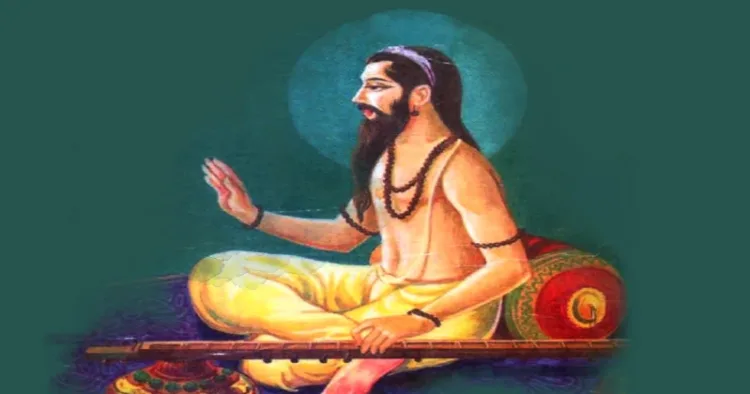Today marks the birth anniversary of Shree Acharya Abhinavagupta, a polymath from 10th-century Kashmir, revered as one of the foremost luminaries of Indian intellectual tradition. Born to an illustrious family of scholars, Abhinavagupta’s profound contributions span philosophy, aesthetics, literature, music, and theology, particularly through his expositions on Kashmir Shaivism or Trika Shaivism. Despite being largely forgotten over the centuries, recent interest has rekindled recognition of his syncretic philosophy and enduring influence, with his ideas now intersecting with contemporary subjects like Quantum Physics and Quantum Mechanics.
Throughout history, Kashmir has been a bastion of spirituality, earning the highest respect. From the era of the Mahabharata until 900 AD, it served as a nurturing ground for a multitude of cultures, including Vedic, Vaishnavite, Shaivite, Buddhist, Tantric, and Shakti traditions. This period was a testament to a higher level of tolerance, with no clashes of cultures or exiles of faith and practices, fostering an environment for the practice and debate of various viewpoints, thereby elevating collective consciousness. This rich heritage is a treasure that needs to be preserved and celebrated.
Kashmir’s legacy includes great saints, scholars, artists, and grammarians, as well as notable kings and conquerors who extended their boundaries without bloodshed or treachery. Among these great kings was Lalitaditya Muktapida, often compared to Napoleon and Alexander, whose conquests covered a greater area than both.
Abhinavagupta, also known as Acharya Abhinavagupta, was born around 940 AD to Narsimhagupta and Vimala. The first shloka of his work, Tantraloka, poetically describes him as “Vimalkalashriya Abhinavshrishti Mahajanani….”. His deep engagement with Shiva Yoga and contributions to India’s philosophical traditions earned him the titles of Visionary of Visionaries, Thinker of Thinkers, Perceptor of Perceptors, and Acharya of Acharyas.
Despite his significant contributions, Abhinavagupta is notably absent from Kalhana’s Rajatarangini, which focused on kings and court scholars. Abhinavagupta operated independently of court patronage, which is a possible reason for this omission.
Abhinavagupta authored over 40 literary works on various disciplines, including systems, Siddhant, Kram, Bhairava, Yamala, Kaula, and Tantra Shastra. His prolific output continues to attract global attention, with over 50 universities and scholars worldwide currently researching his work. His commentaries on Anandavardhana’s Dhvanyaloka and Bharata Muni’s Natyashastra earned him fame throughout India.
Tragically, much of Abhinavagupta’s work has been lost due to the turmoil in Kashmir post-12th century. It is said that at the age of 68, Abhinavagupta wrote the Bhairava Stotra and, along with 1200 disciples, entered a cave near Bheerava while chanting the verses, fully immersing himself in Shiva, never to return.
In light of radicalised forces attempting to erase Kashmir’s rich heritage, remembering Abhinavagupta is crucial. Celebrating his millennial year annually for the next few years will highlight Kashmir’s spiritual connections and rich heritage, enlightening Kashmiris and the broader world. This celebration will serve as a rightful homage to this legendary figure, ensuring his contributions are remembered and appreciated.



















Comments